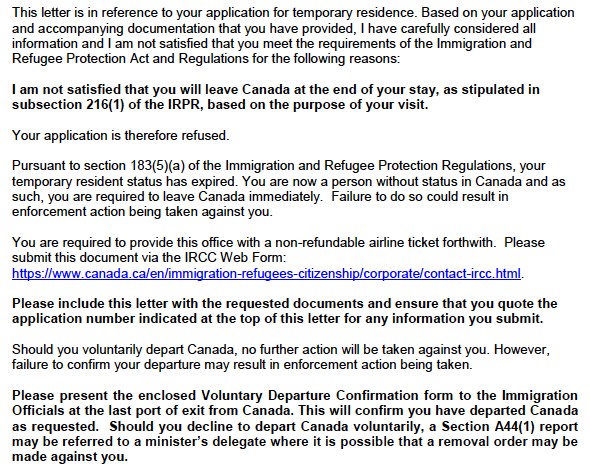Introduction
I posted as early as in March 2015 (when Express Entry was only three months old) as to why I felt Express Entry would create headaches/misrepresentation concerns for applicants.
Almost a year later, it looks like the leeway/grace period in the Express Entry’s electronic management system has officially ended. Express Entry completeness/minimum requirement provisions are being applied very strictly. An unforgiving system, unlike a paper application where it was very common to try and supplement information after the fact or the usual temporary resident system where a pull and resubmit is quite easy, Express Entry doesn’t appear to be too receptive to those type of requests. An electronic-Application for Permanent Residency (e-APR) is a one-shot deal and should be treated with overabundant caution by applicants and practitioners alike.
There are two major triggers for Express Entry failure that fall into the realm of the arguably controllable:
- Individuals are being bounced (technically not refused) for providing incomplete documentation and not meeting the R. 10(1)(c) requirement of the Immigration and Refugee Protection Regulations to submit a complete application; and
- Individuals are being refused for no longer meeting the minimum requirements based on the self-declared information on their initial Express Entry profile no longer being an adequate reflection of their point score or their qualifications. The authority for this is the Immigration and Refugee Protections Act Sections 11.2 , 10.3(1)(e), and 10.3(1)(h). They are not the most straight-forward sections and require some reading.
Many of the refusal/incompleteness issues come from inherent “shortcomings” with the Express Entry system. First, when a profile is created a score is generated. However, unless an Applicant updates the information in their application the score does not automatically update. Individuals who have birthdays, find new jobs, get new degrees conferred, or even have new family members can find their applications reassessed at the time of their application to find they no longer meet minimum requirements that their initial Invitation to Apply was based on.
Second, when Applicants are provided a personalized checklist at the e-APR stage, the checklist does not often provide complete details of what is required. For example, looking at a checklist of required uploads, it can be easy to assume that only the document named is required without questioning whether that document is a) enough or b) the details of the content required in that document.
Third, so much of the e-APR system is now based on proof of documentation such as medical examinations and police certificates, which themselves are dependent on documentation provided by third parties (other Countries/Doctors, etc.). Many times an individual will have challenges securing those documents and/or have past medical examinations or police certificates near expiry. Most of the times errors are innocent or simply based on poor document handling or time-lining of expiry dates.
Best Mitigation Stratetgy – Read, Review, and Record Everything
Step 1 : Read
Immigration, Refugee and Citizenship Canada (IRCC) has a lot of good, publicly-available, information for applicants. It’s free. You don’t need a lawyer to read them off the screen for you. You want to know this before your consultation with an immigration advisor.
This one of the most important documents for Express Entry, is IRCC’s program delivery instructions for a completeness check: http://www.cic.gc.ca/english/resources/tools/perm/express/intake-complete.asp#document_checklist
A little harder to read, but equally relevant – here are the instructions for IRCC’s review of applications after an e-APR is submitted to ensure they met initial program requirements http://www.cic.gc.ca/english/resources/tools/perm/express/refuse.asp
Step 2: Review
If your Express Entry has been in the pool soaking in the hot tub for awhile, perhaps it is a good idea to check if the information is still accurate. Particularly if something changes in your own profile – you have obtained additional documents, you have found a new job, etc. you should make sure to update immediately.
You also want to review all the information you include before you submit your e-APR. There are specific things you can add to your personalized checklist to help cover gaps/changes and explain deficiencies. You want to make sure you put forward the strongest foot forward at the e-APR stage and review all information to date – is my travel history complete? did I list all my jobs? am I sure I did not stay in a country for longer than six months combined (side note: see new changes announced by IRCC here). This is also, where you may seek the assistance of a legal representative to identify and help you uncover and address those gaps.
Step 3: Record Everything
For an incompleteness under R. 10, you may be lucky and have the information in your profile stay for 60 days as you update it and create a new eligible profile. For refusals, you will likely have your application wiped clean and will have to start from scratch. This can be a huge headache for applicants.
At the very least, you want to have the information you used or submitted in previous applications saved. You don’t want to be in a position where you are justifying a changed answer on the basis of “I don’t remember.” Also, in the event in the near future that a more established reconsideration mechanism (*nudge nudge IRCC*) opens up, you want to be able to have evidence that you made best efforts and that the process itself (rather than your own actions) were the result of refusal.
Lack of Remedies
As mentioned above, IRCC has created few remedies for Express Entry incompleteness/refusal issues.
One of the best proactive remedies is the request for an extension of time and proof that best efforts have been made. Again, this is discretionary and depends on category. See IRCC instructions for more specifics.
Right now, financially speaking for clients it is hard to justify paying X amount of money to judicially review (challenge the administrative decision making process) of an Express Entry refusal when it would only take creating a new profile and the receipt of a new ITA. However, I would suggest that a review of the events leading up to the refusal and a review of one’s current eligibility, CRS score, and family/work situation should occur prior to writing off the judicial review process.
Conclusion
Express Entry was promised as a gateway for Canadian economic immigration, but for many its turned into a locked door. A little diligence and an understanding of the way the system works can go a long way to save you heartache and lost time down the pathway to permanent residency.


